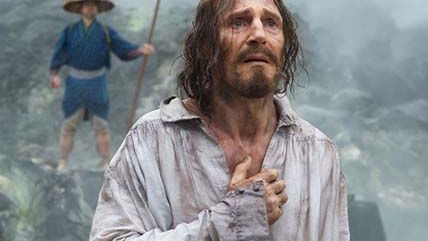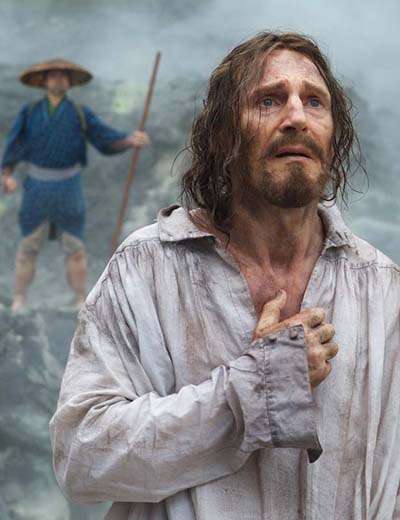Silence


Martin Scorsese's Silence, about two 17th century priests who travel to Japan during a period of brutal Christian persecution, shows how difficult it is to create art from a worldview that won't be shared by many in the audience.
For a nonbeliever, the premise may well read as lacking heft. What's the big deal about stepping on an image of Jesus, anyway? Surely it's worth doing to keep dozens of your followers from being tortured and killed? Yet for people of faith, watching the protagonist inch toward apostasy as a broken man can be a soul-crushing experience.
Silence is an instance of pop culture grappling with impossible theological questions about the demands of morality, and yet it has gone unnoticed by most of the population. It's a box-office flop that spawned a thousand think pieces.
This article originally appeared in print under the headline "Silence."
Editor's Note: As of February 29, 2024, commenting privileges on reason.com posts are limited to Reason Plus subscribers. Past commenters are grandfathered in for a temporary period. Subscribe here to preserve your ability to comment. Your Reason Plus subscription also gives you an ad-free version of reason.com, along with full access to the digital edition and archives of Reason magazine. We request that comments be civil and on-topic. We do not moderate or assume any responsibility for comments, which are owned by the readers who post them. Comments do not represent the views of reason.com or Reason Foundation. We reserve the right to delete any comment and ban commenters for any reason at any time. Comments may only be edited within 5 minutes of posting. Report abuses.
Please to post comments


I doubt the film mentions that one reason the Japanese treated the Christians so ruthlessly was because of the example set by Spanish Christians in the Philippines, where they went around converting people like crazy and incidentally helping conquer the islands for their government; there were also the examples set in China, with so many little colonies being grabbed by foreigners. Last thing the Japanese government wanted was being overthrown by foreigners, and since the foreign Christians considered it part of their duty to convert the entire country and overthrow the government, well, you can draw your own conclusions.
The Japanese treatment of Christians was no worse than the Spanish inquisition treatment of Jews and whatever Christians they didn't like.